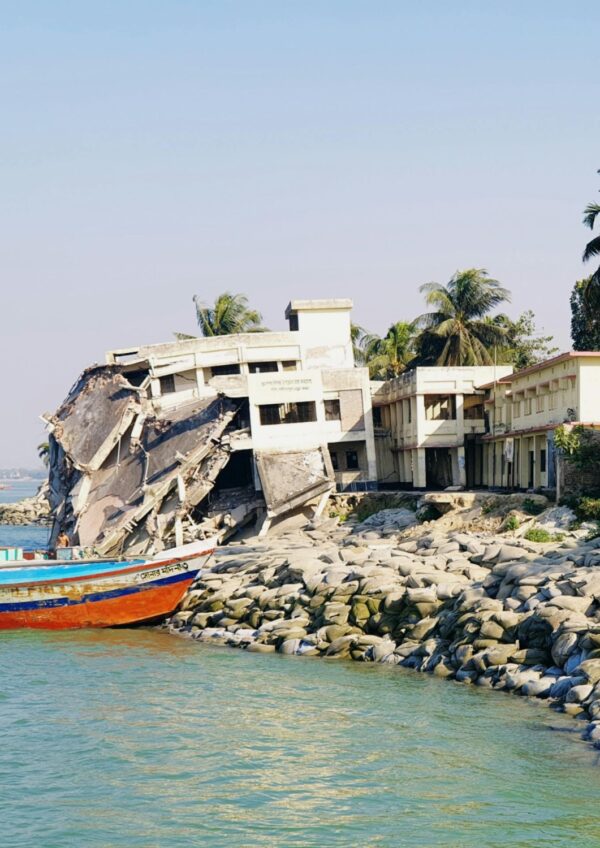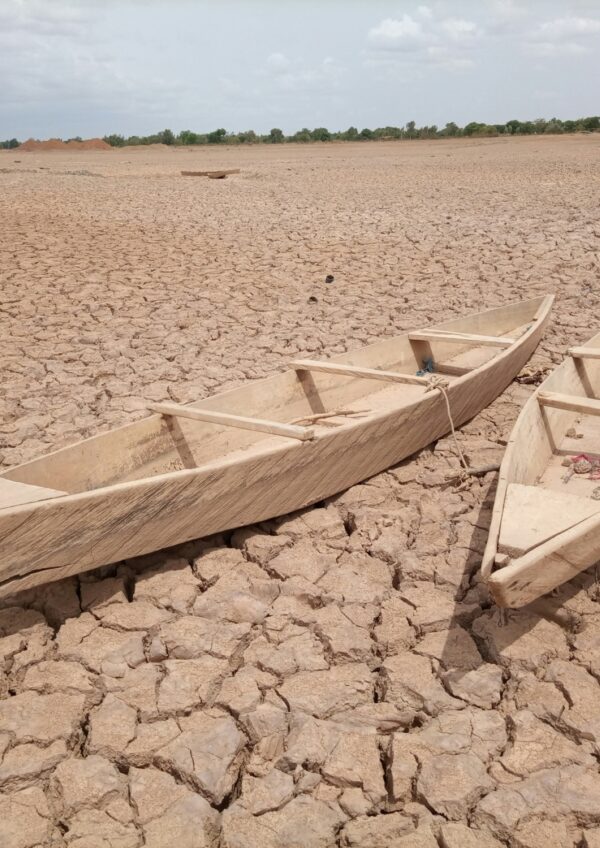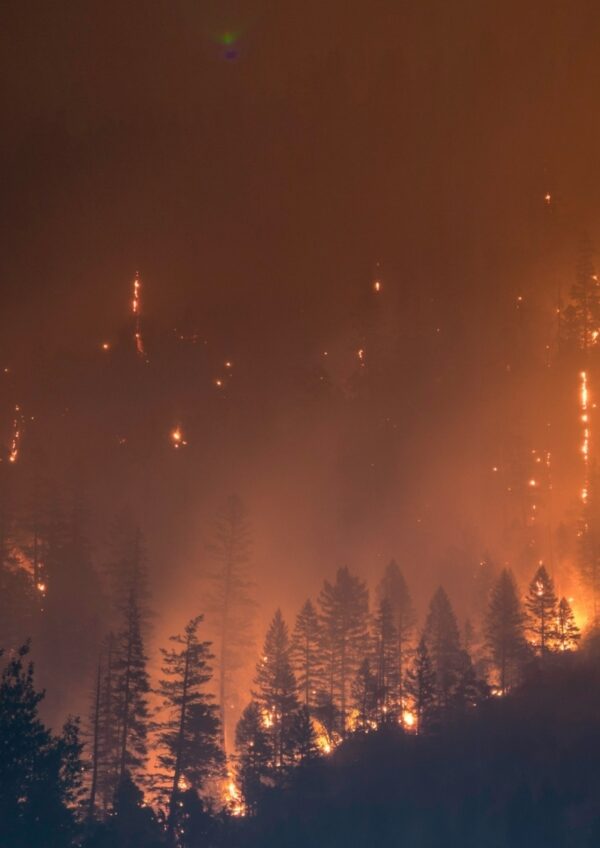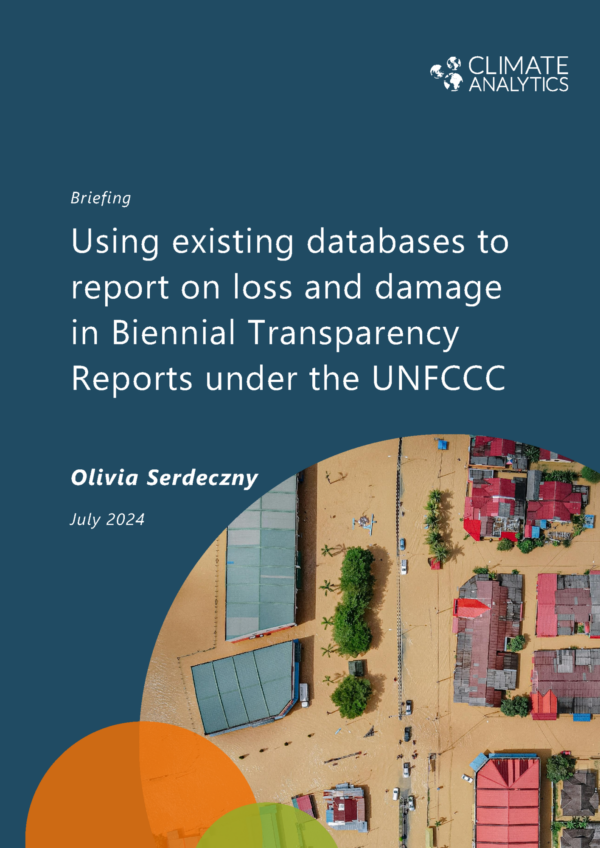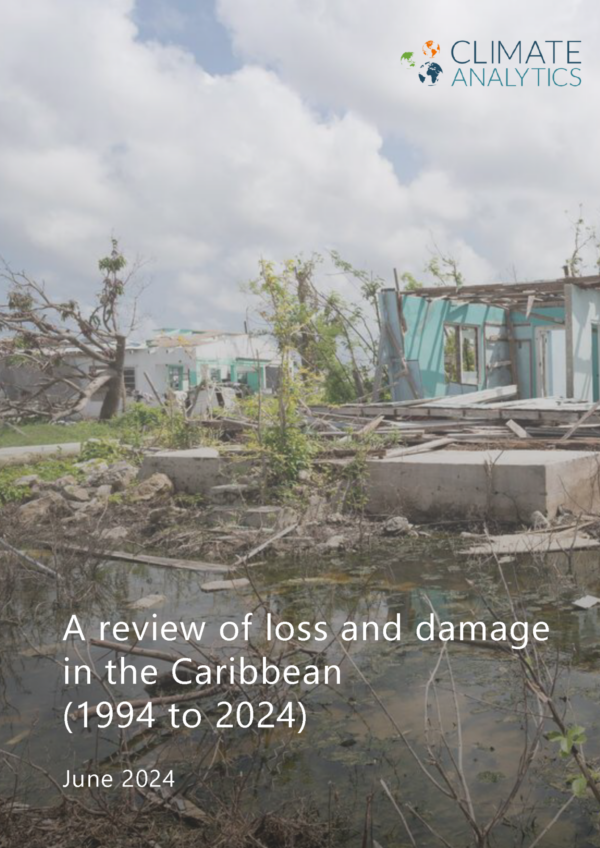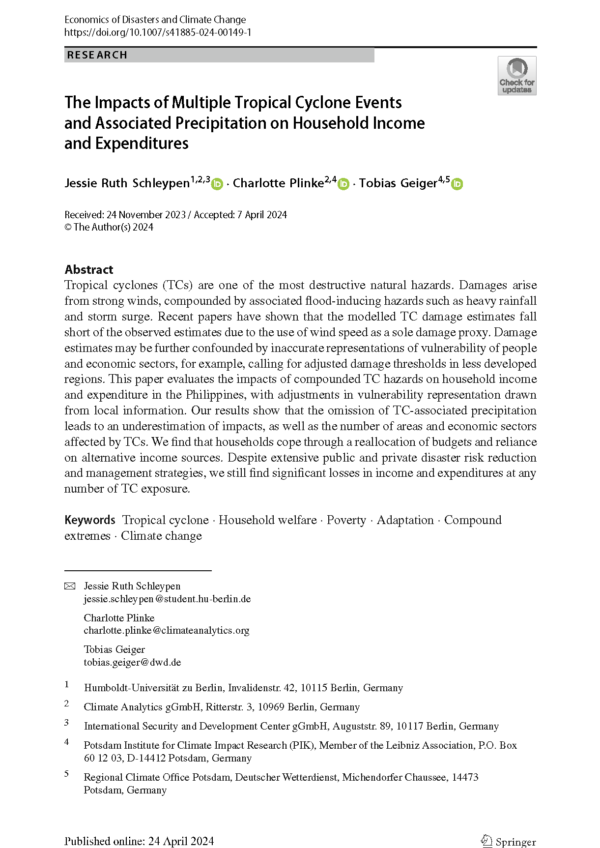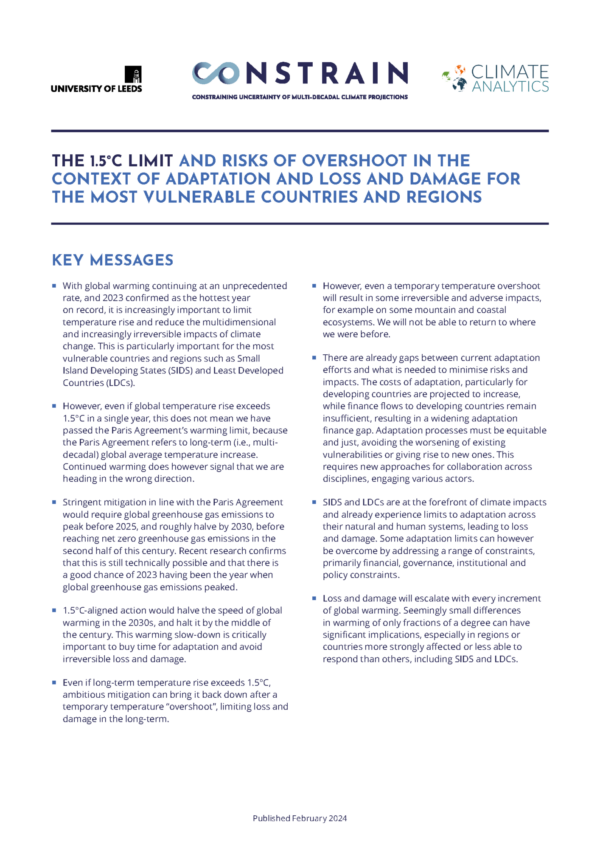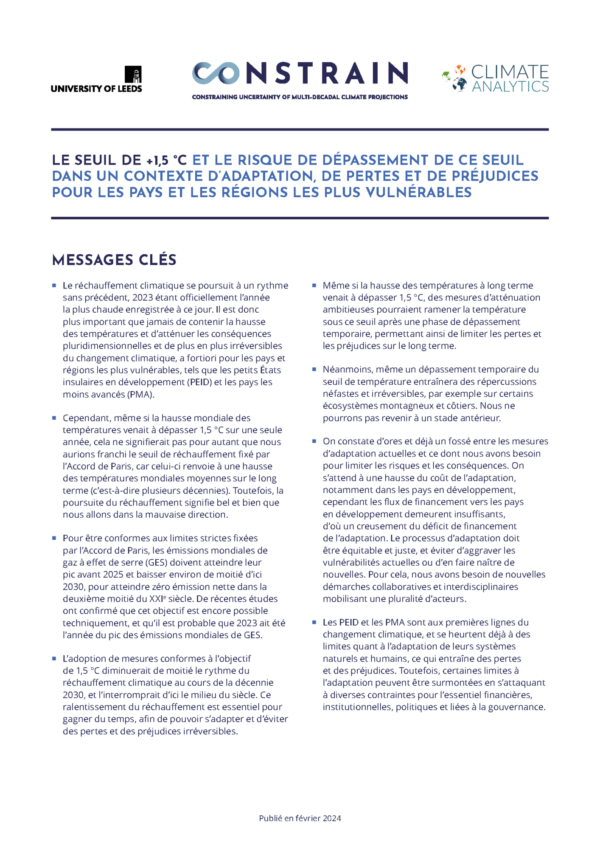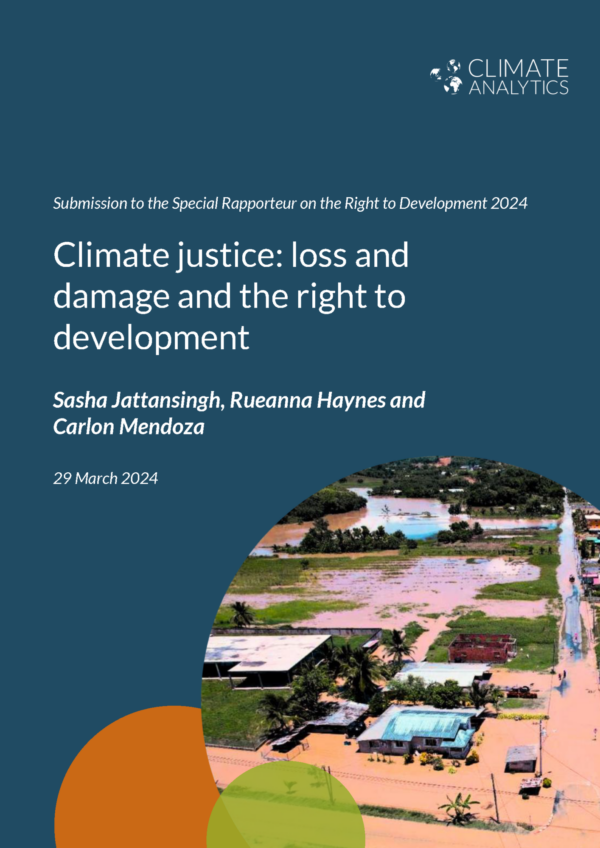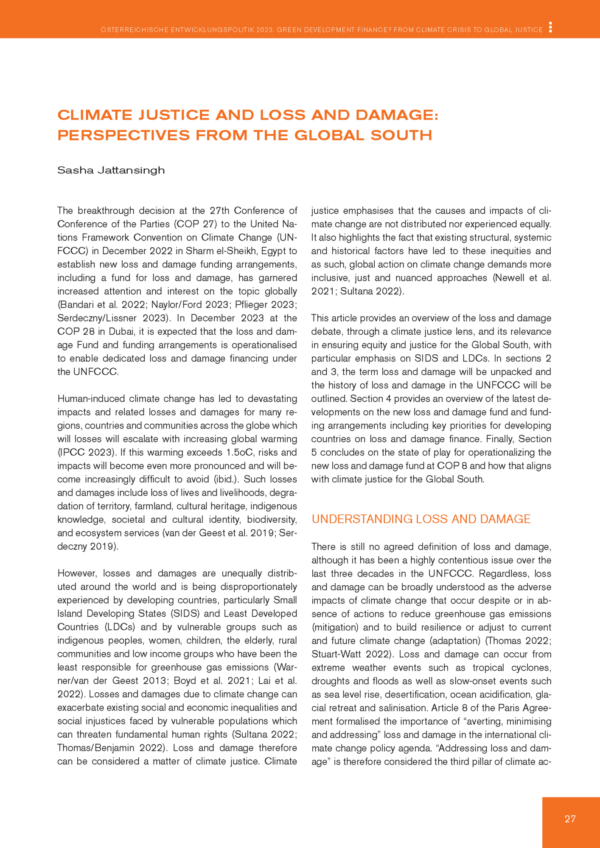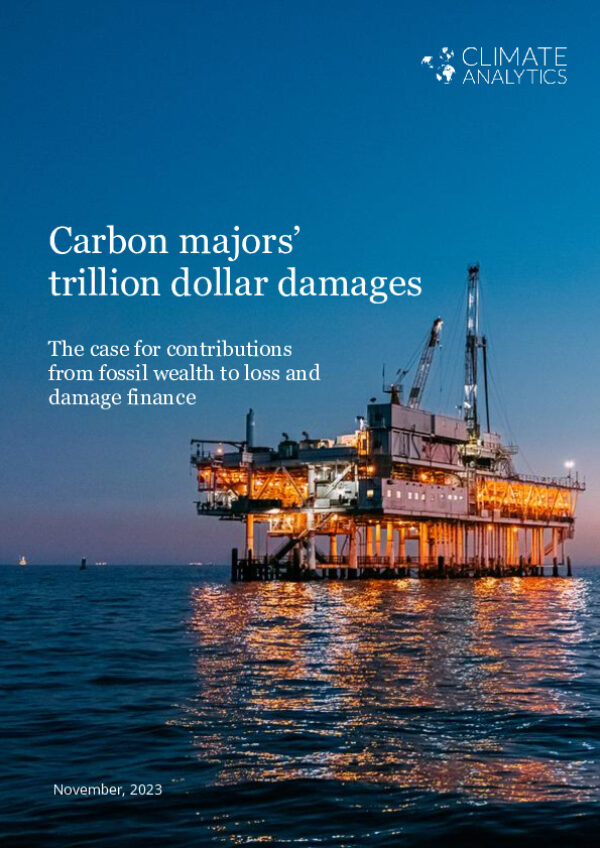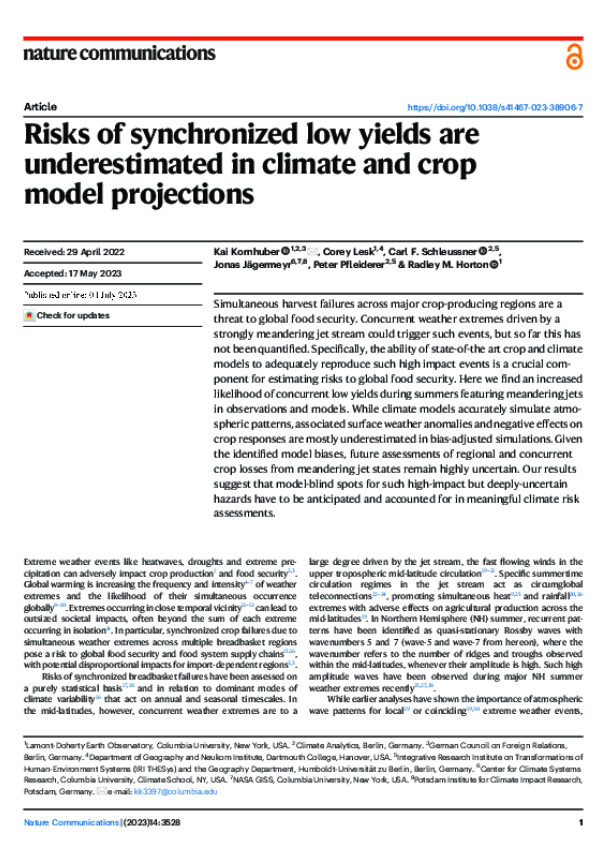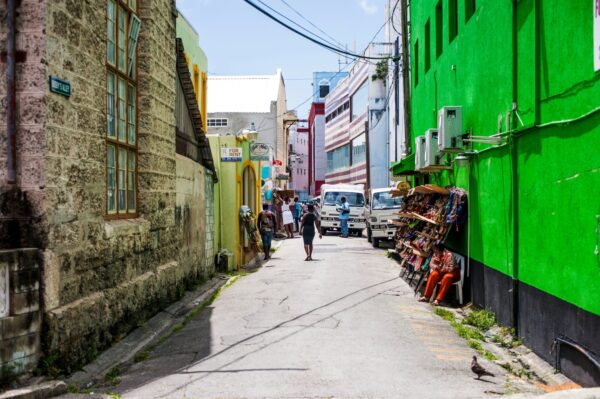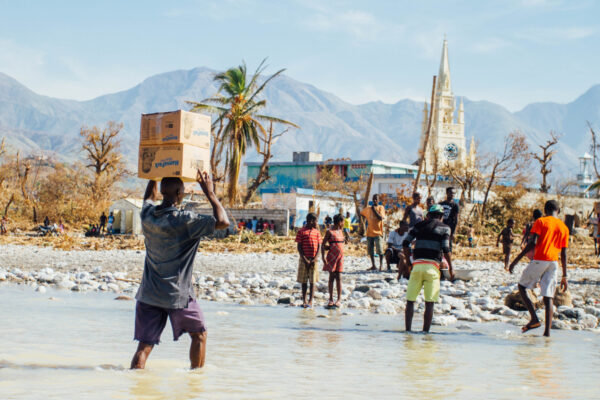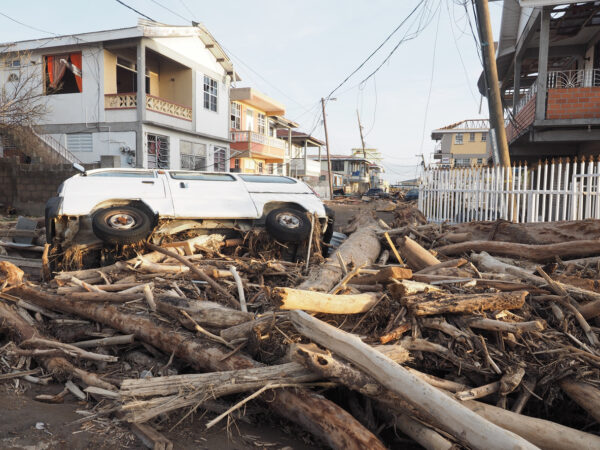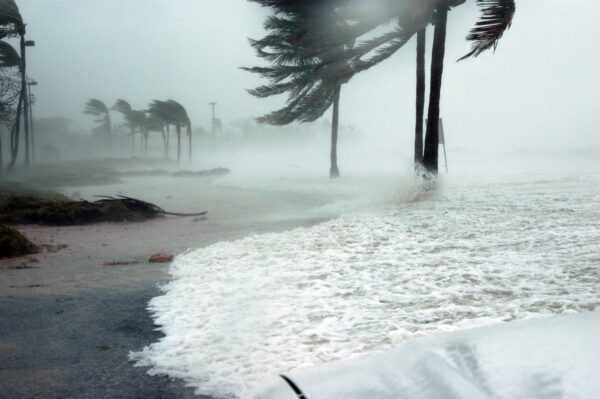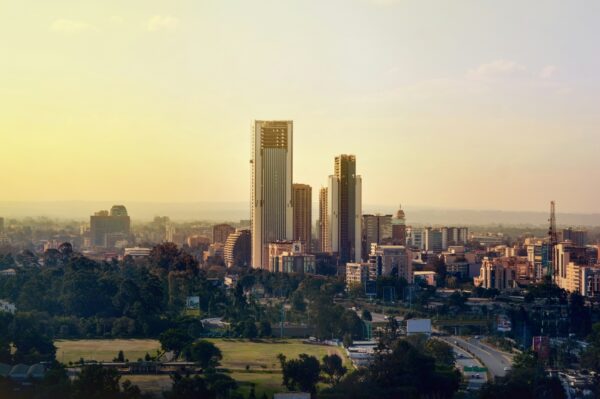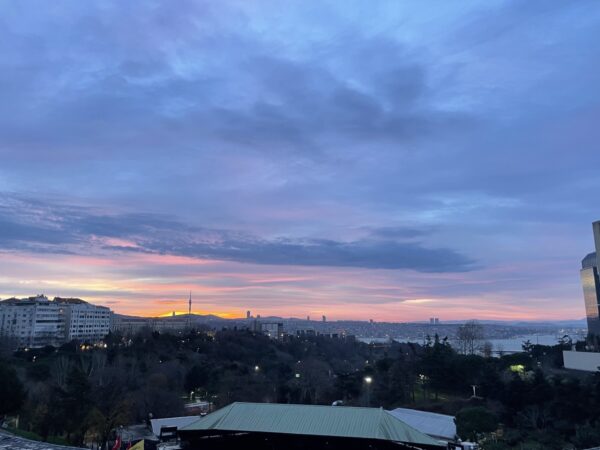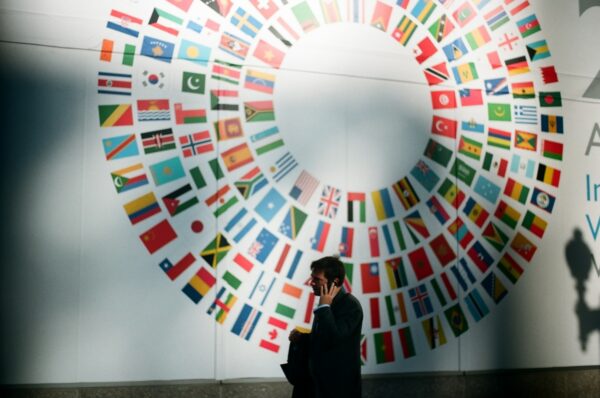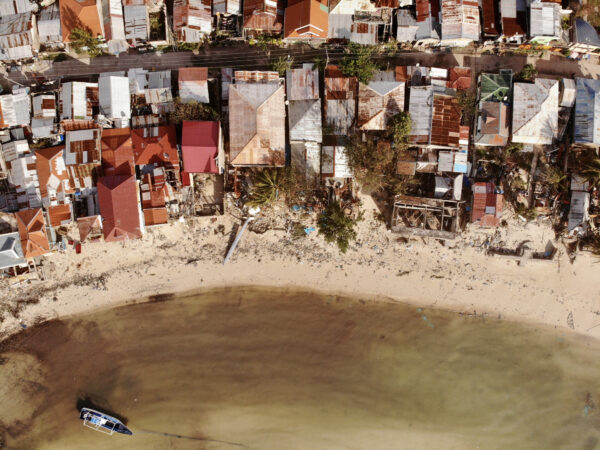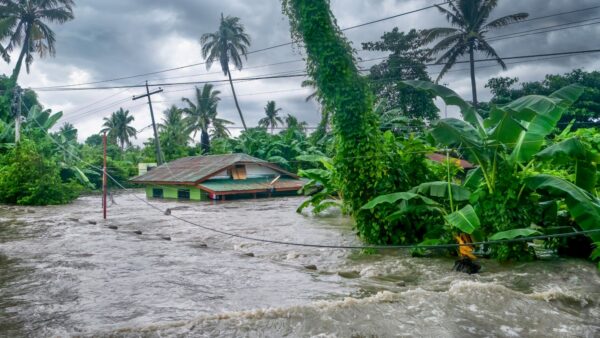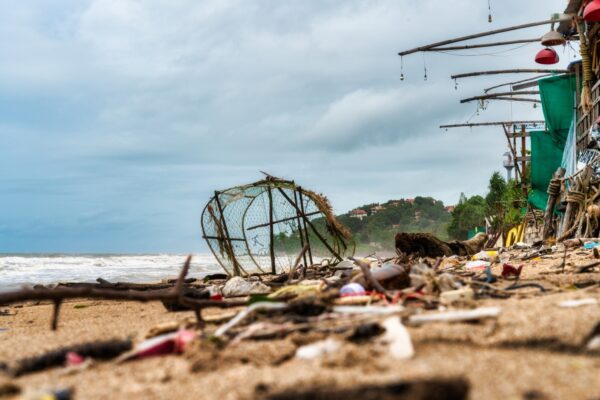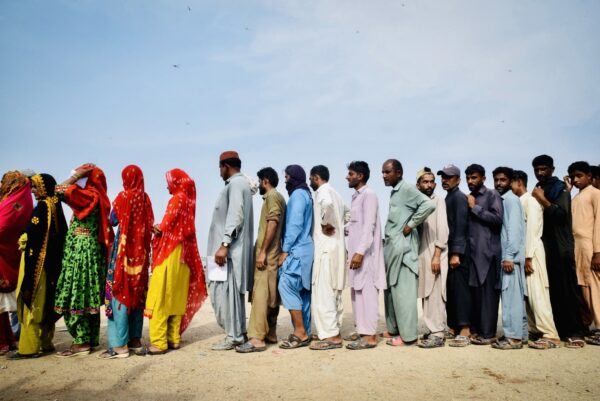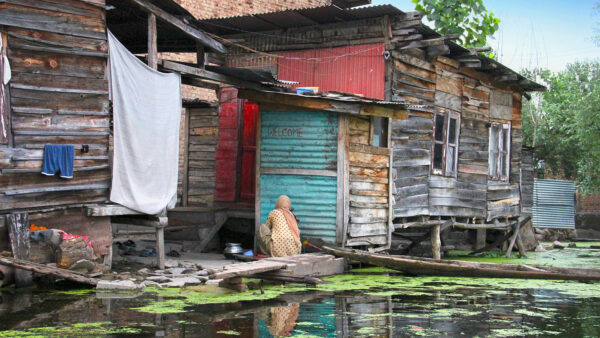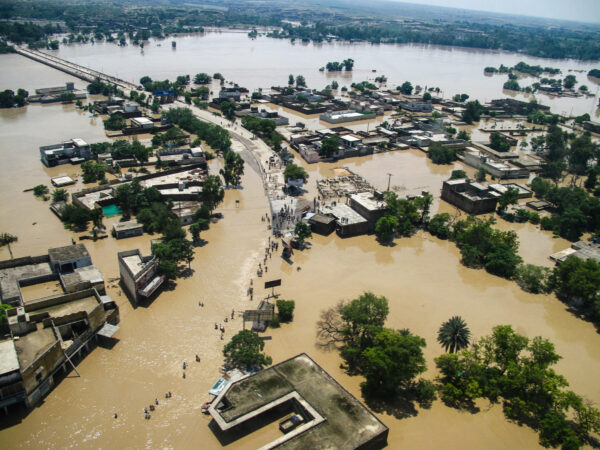Loss and damage
Share
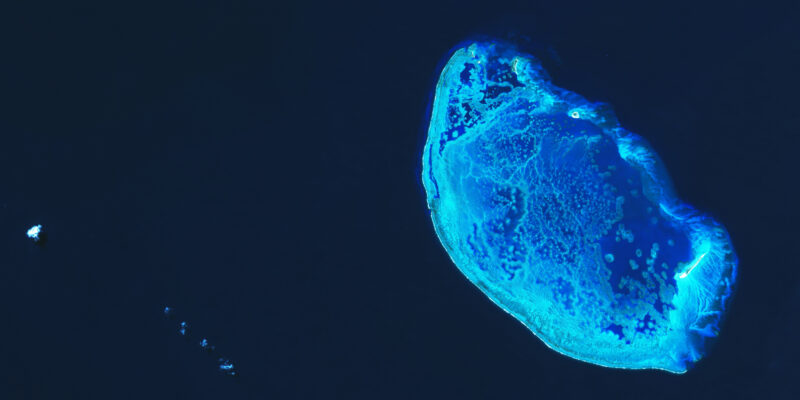
Many countries are already experiencing climate-related loss and damage, from the devastation caused by floods and wildfires, to migratory pressures resulting from slow onset events like sea level rise.
Vulnerable counties least responsible for causing climate change have long called for finance and other support in dealing with these impacts. These demands were formally recognised in 2022 under the UNFCCC and the Paris Agreement, with the establishment of a loss and damage fund.
Our work in this area focuses on:
- addressing information gaps in areas such as extreme weather events, slow onset events, and economic and non-economic losses
- thought leadership, research and analysis on approaches to address loss and damage
- support integrating loss and damage considerations into national planning
- developing regional-specific approaches for assessing and reporting on loss and damage
- supporting work to design and implement the loss and damage fund and funding arrangements
Our experts
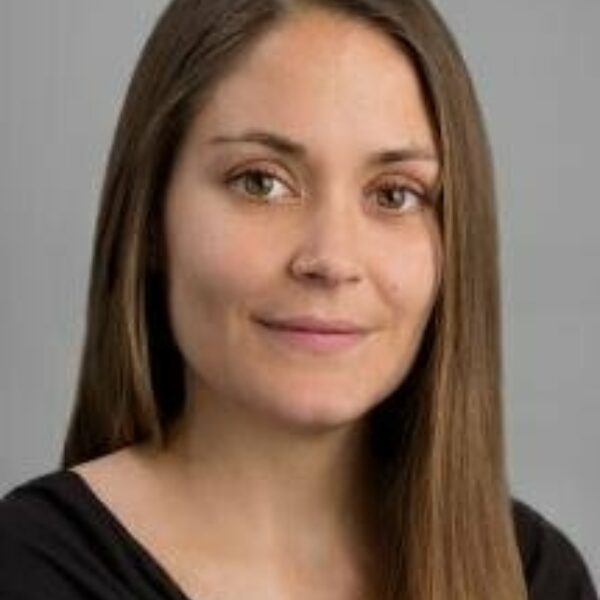
Dr Olivia Serdeczny
Research Analyst

Dr Asher Siebert
Senior Scientist on Loss and Damage
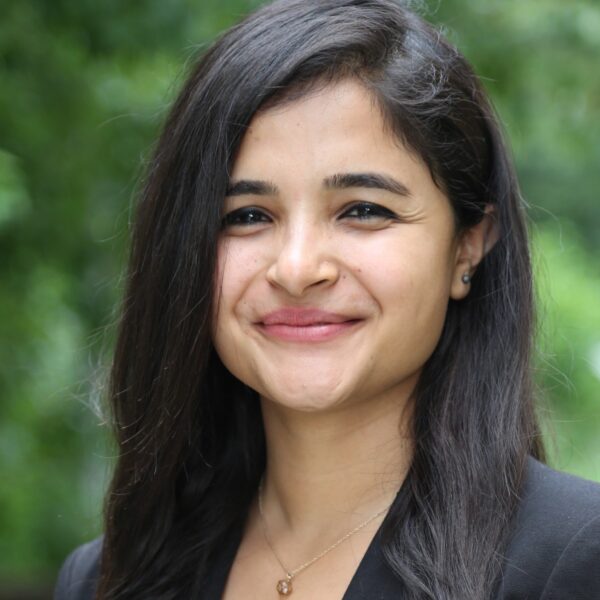
Sneha Pandey
Climate Diplomacy and Policy Analyst

Sasha Jattansingh
Senior Adaptation and Loss and Damage Expert and Deputy Director of Climate Analytics Caribbean
Projects
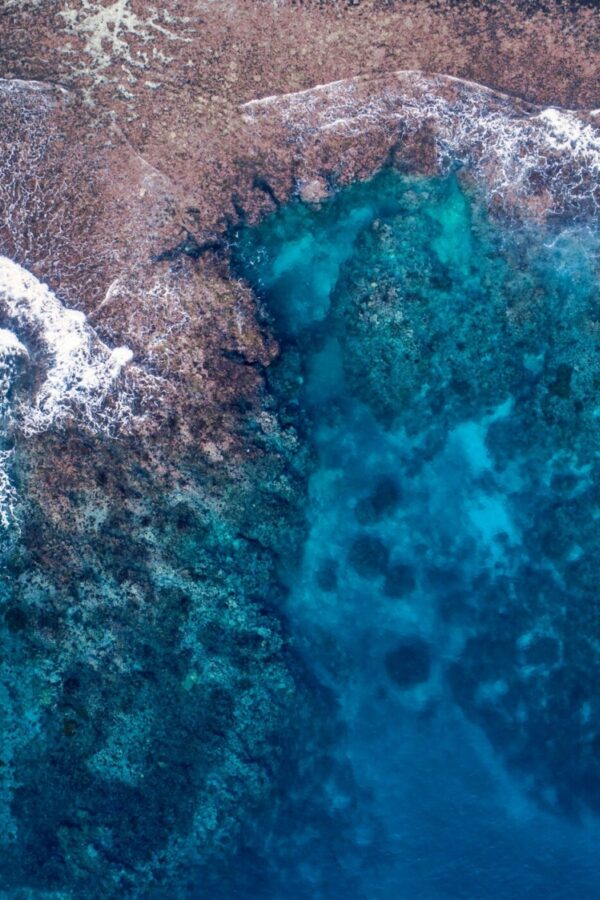
Building resilience to climate-related loss and damage in Pacific island countries
This project strengthens the resilience of Pacific Island nations by enhancing the understanding, measurement, and response to climate-related loss and damage – including non-economic losses. Through a community-driven approach, it develops tools, projections, and valuation methods to inform national priorities, improve access to climate finance, and safeguard the livelihoods and identities of affected communities.

What happens when you don’t, or can’t, migrate?
When climate impacts hit, there are those who don’t, or can’t, leave. The Immobility in a changing climate (ITHACA) project looks at the choices and constraints that lead to people’s immobility in the face of climate change, and what ramifications that has for their lives.

How do socioeconomic barriers inform limits to adaptation?
The EmBARK project investigates possible trajectories of socio-economic transformation processes and analyse their relevance as potential barriers to adaptation to climate change.
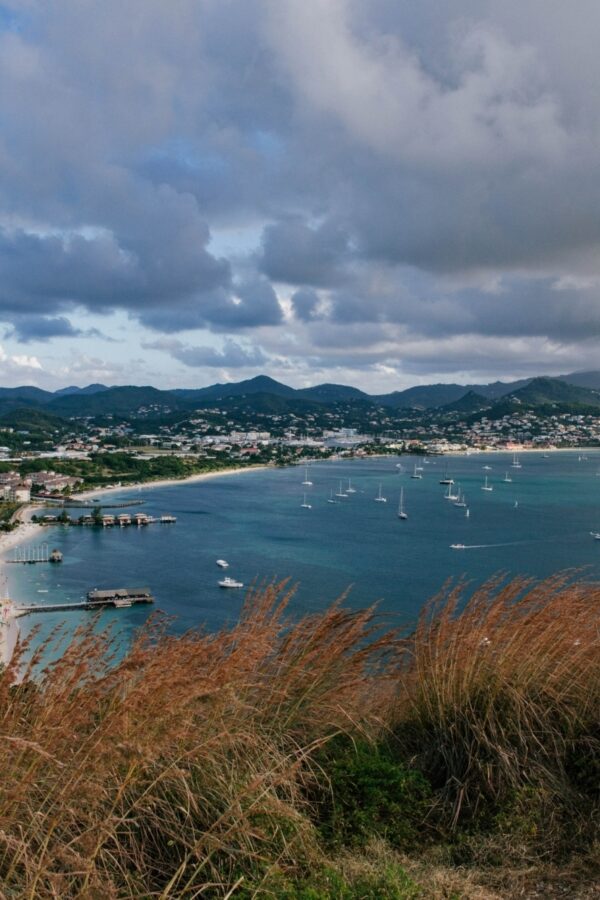
Climate risk, adaptation and insurance in the Caribbean
The Climate Risk Adaptation and Insurance in the Caribbean (CRAIC) project, led by Munich Climate Insurance Initiative, assists Caribbean countries in their efforts to increase social resilience and adapt to climate change by incorporating climate risk insurance within a broader framework of disaster risk reduction strategies.
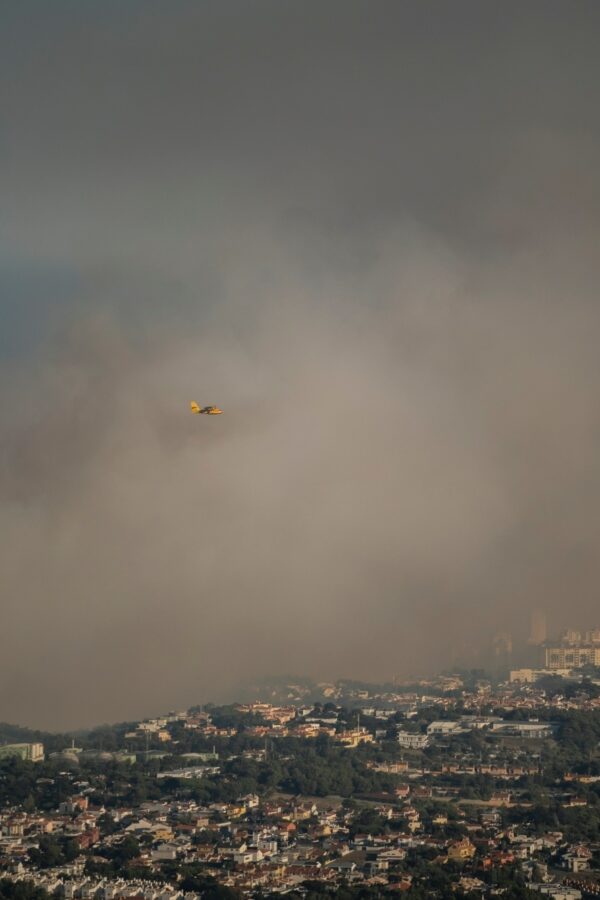
Understanding the climate impacts associated with temporarily overshooting 1.5°C
This project is working to develop the science around what the climate impacts of temporarily overshooting 1.5°C would mean for our climate.
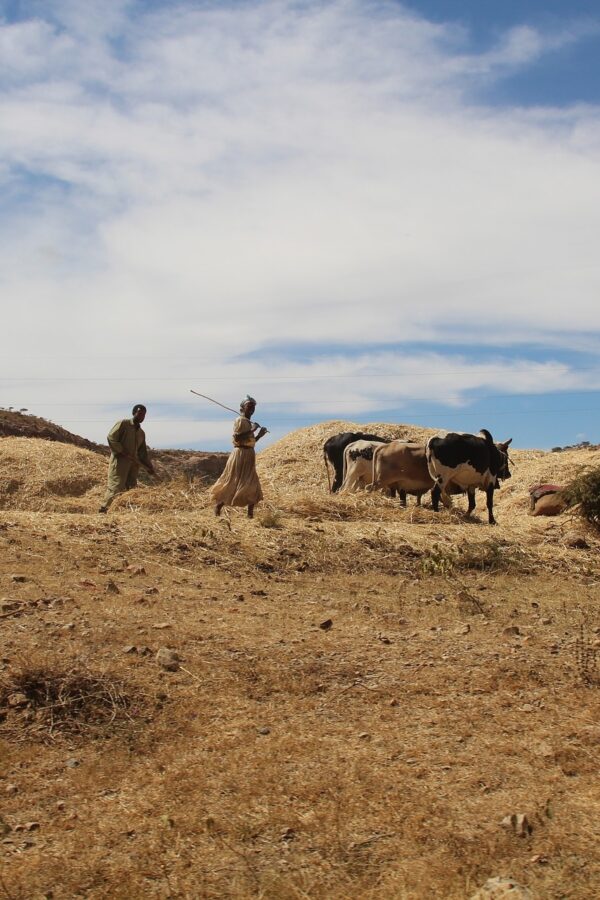
Risks of water and food insecurity in the Horn of Africa Drylands
The Horizon Europe funded project, Down2Earth, looks at future risks from water scarcity and food insecurity in vulnerable countries in the Horn of Africa Drylands and supports community-centered climate adaptation and resilience.
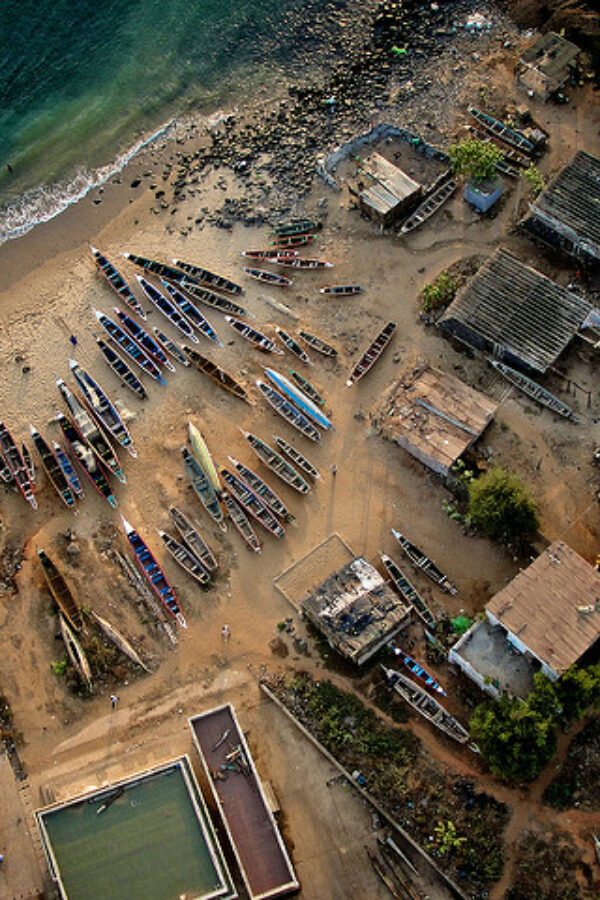
Science-based national adaptation planning in Sub-Saharan Africa

Assessing the differences in climate impacts between 1.5°C and 2°C

Turn down the heat report series
From 2012 to 2014 we authored a series of reports for the World Bank looking at the impacts of climate change in a 4°C world with an emphasis on the impacts for the most vulnerable.
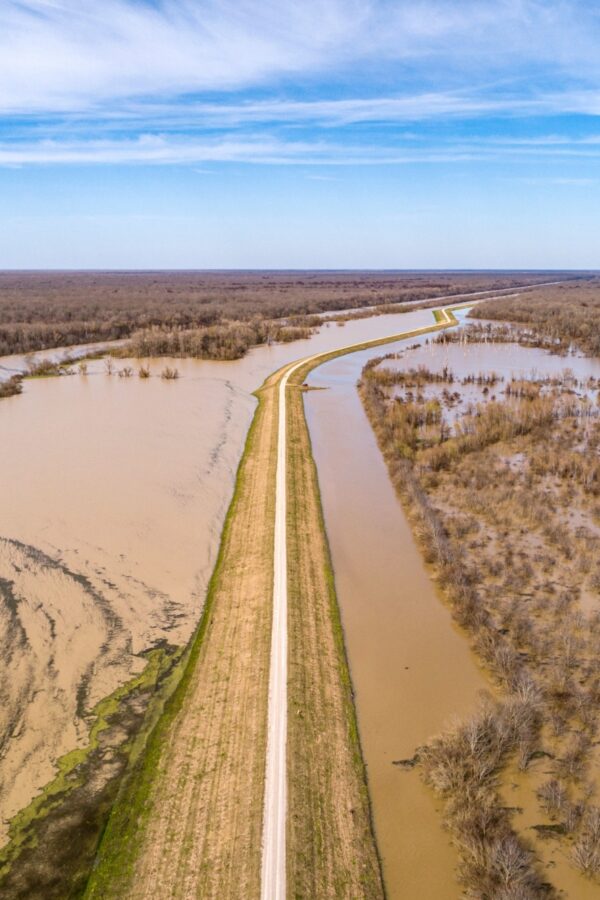
Climate vulnerability monitor
The Climate Vulnerability Monitor, funded by the UN and spearheaded by the Climate Vulnerability Forum, aims to develop a global report and tool exploring climate change impacts, with a particular focus on the world’s most vulnerable countries. Climate Analytics leads the science consortium for this project.
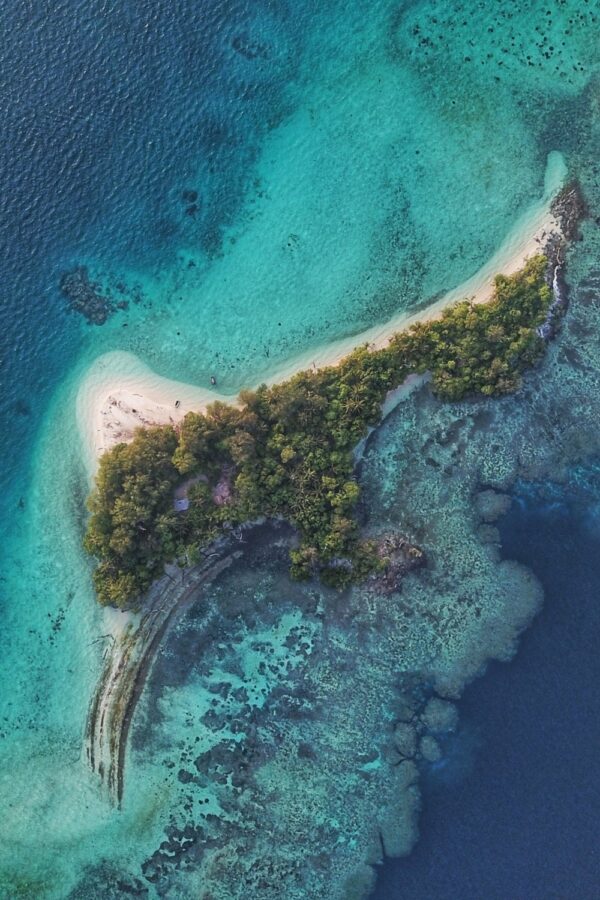
IMPACT
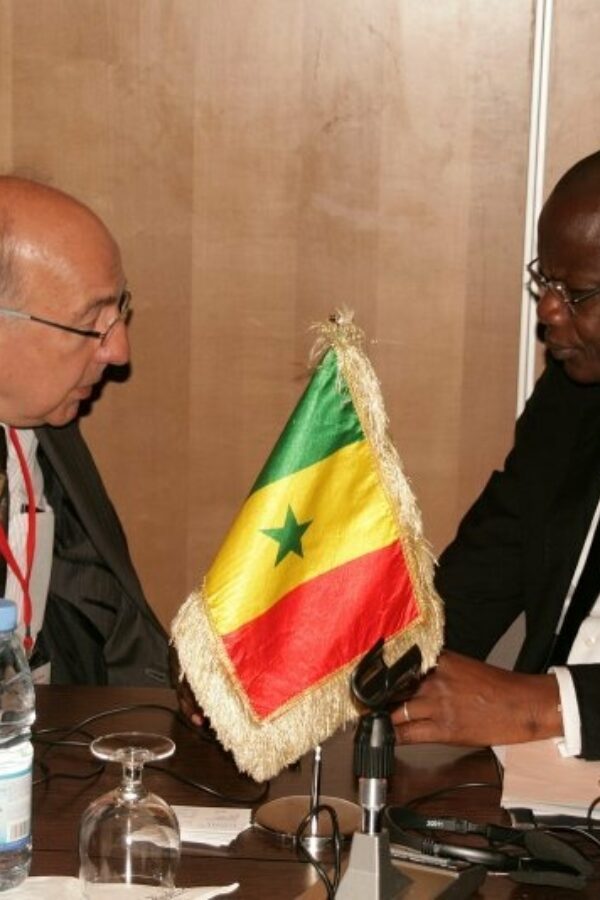
High-Level support for LDCs and SIDS on climate change
The HLSM High-Level Support Mechanism for LDC and SIDS on Climate Change project creates a support mechanism for high-level political representatives and their advisors from LDCs and SIDS that is demand-driven, responsive to ongoing needs and firmly rooted in the respective regions.

SURVIVE
SURVIVE, a joint project between Climate Analytics and the Potsdam Institute for Climate Impact Research (PIK) supports Small Island Developing States (SIDS) and Least Developed Countries (LDCs) in the international climate change negotiations.
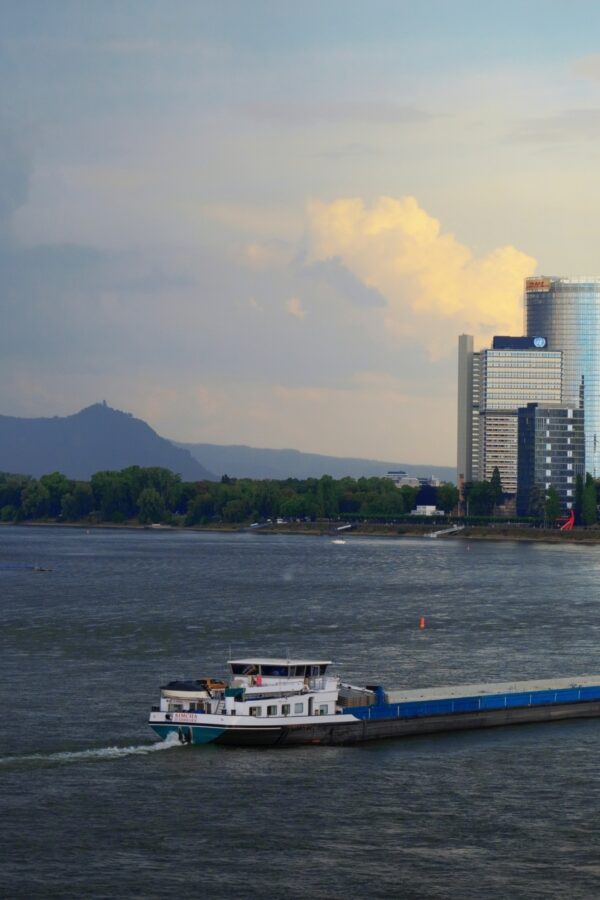
PREVENT
PREVENT is built around a team of experienced climate scientists and analysts, whose objective is to provide science, policy, strategic and analytical support for delegations of the Least Developed Countries and Small Island Developing States.

